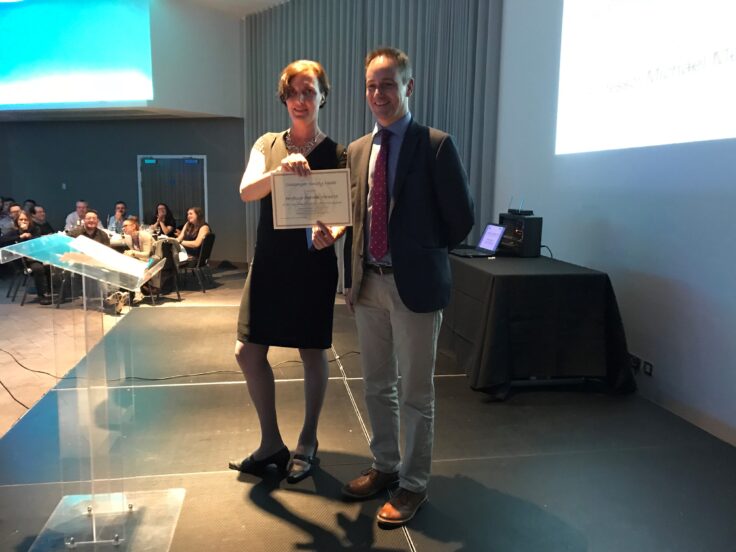Challenger Medal award
The prestigious Challenger Medal for excellence in marine science has been awarded to British Antarctic Survey (BAS) oceanographer Professor Mike Meredith.
Presented every two years by the Challenger Society – the foremost learned society representing the UK academic marine community – the medal recognises significant contribution to UK marine science.
It was presented by Prof Rachel Mills, President of the Challenger Society, at its biennial meeting currently taking place at Newcastle University.

Prof Meredith is head of the Polar Oceans team at BAS, which researches the role of the Southern Ocean on global climate and ocean systems. He holds an honorary Chair at UHI and is a fellow of the Royal Meteorological Society. He is currently Coordinating Lead Author for the IPCC Special Report on Oceans and Cryosphere in a Changing Climate.
Professor Meredith said: “To receive the 2018 Challenger Medal is a wonderful honour, and I am both delighted and humbled to be recognised in this way. The oceans are critically important in sustaining our planet, and the lives and livelihoods of its inhabitants.
“I am very fortunate to have outstanding colleagues in the UK community and beyond to work with on such an important area of research. This award is a reflection of our collective effort, and I am extremely thankful to the Challenger Society for selecting me as the recipient.”
Taking up his position as the new President-elect of the UK Challenger Society for Marine Science, Newcastle University’s Professor Rob Upstill-Goddard added:
“The Challenger Society dates from 1903 and is the premier UK society for marine scientists, with several hundred established researcher and student members.
“Among its many objectives are the advancement and application of marine science through research and education, and the dissemination of marine related knowledge to society at large, so as to stimulate a wide debate around marine issues.
“The effects of human activities such as warming and acidification from increasing carbon dioxide, overfishing, pollution, and the introduction of invasive species are now felt almost everywhere, from the centres of the great ocean gyres to the remotest polar regions, and in the deepest oceanic trenches.
“The consequences are largely unknown but they will affect the whole planet. Addressing this threat is absolutely vital and it is important that the scientific findings being showcased at Challenger 2018 are widely shared, discussed and acted upon.”